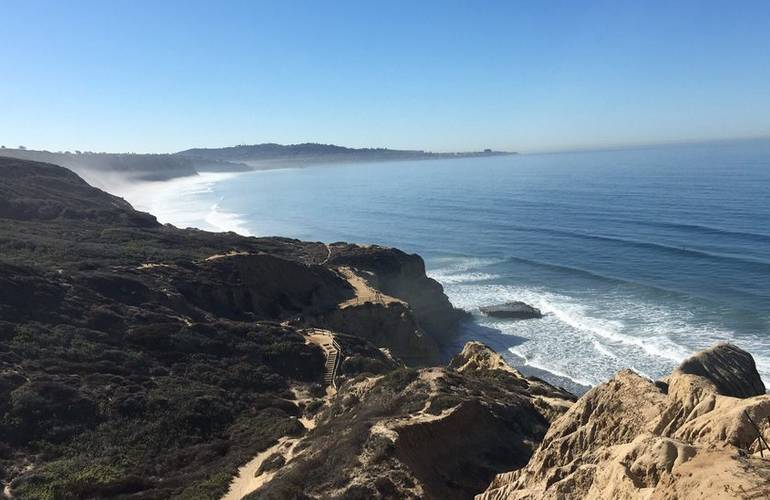
Torrey Pines State Reserve is a beautiful wilderness reserve in San Diego County. If you are a nature lover, it’s one of the wildest stretches of land on the Southern California coast!
With over 2,000 acres of untouched land, the Reserve has long stretches of beachfront and a fantastic lagoon home to migrating birds. Visitors come from around the globe to witness the California coast as it was before development.
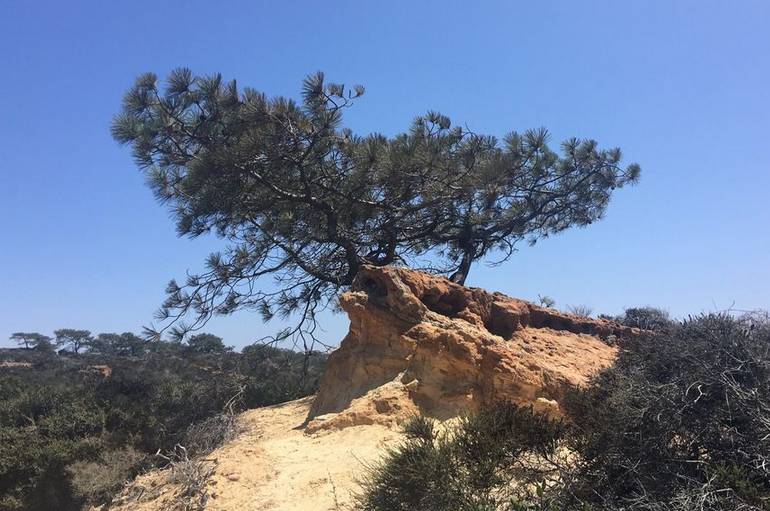
First observed by Spanish sailors in the 1500s, those explorers used it as a map mark and labeled it “Punta de Los Arboles” or “Wooded Point” based on the landscape of trees.
Those trees were identified in the mid-1800s as a unique species of pine that grows only along a small strip of coast from Del Mar to La Jolla and on Santa Rosa Island.

The Torrey Pine is the rarest pine in the United States and one of the most occasional pines globally. The Reserve features varied terrain. The sand and clay beaches and lagoons that were present fifty million years ago have evolved into sandstone.
As sea levels rose and fell over the last million years, steps and gouges have been cut into the rock, making for a breathtaking landscape. The formations provide a geological look into the evolution of the region.
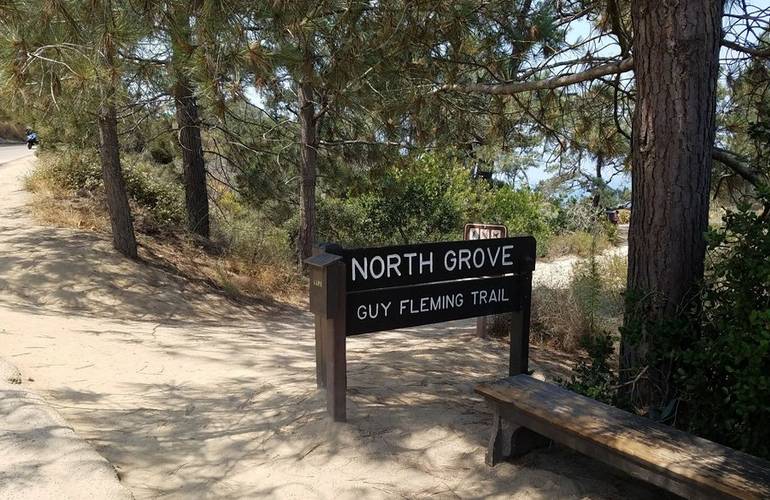
Hiking Trails Torrey Pines State Reserve
Hiking trails wind through these terraces, and along the way, you will witness wind-formed trees and wildflowers, which vary by season. The sandstone formations and the sea below the steps can be observed from the trail.
One of the most scenic trails starts near the main entrance from the Coast Highway and rises three hundred feet in under a mile. It has become the most popular walking and hiking route for visitors.
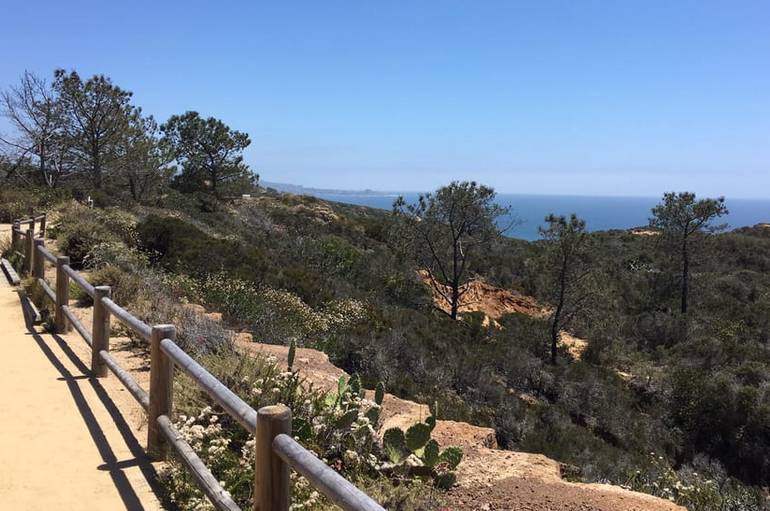
Many sections of the trails parallel the bluff edge and are excellent sites for observing the yearly migration of the Gray Whales and the dolphins that swim the shores year-round.
Many visitors have observed leopard sharks swimming beneath the sea surface. Artists and photographers frequent the Reserve, capturing the changing landscape.

The Canyon Rim Overlook and the Elfin Trail are two more routes to consider. The Broken Hill and Beach Trails close in bad weather, so check the forecast ahead of time if these trails are in your plans. Other routes are sometimes closed for soil preservation, but there is always plenty to explore, with over eight miles of hiking trails.
An adobe structure built over 75 years ago by some native tribes still stands and is used as a Visitor Center and museum. Many exhibits on the natural and cultural history of the Reserve and region are available year-round.

Before You Go
- On Weekends and holidays, nature walks are hosted twice daily at 10 AM and 2 PM.
- Group and field trips can be arranged. Call ahead for details and scheduling. Park volunteers go out of their way to make your visit unforgettable, so don’t be afraid to ask for information or advice.
- The Visitor Center is open from 9 AM to 6 PM during summer and 10 AM to 4 PM during winter. The offices for the Rangers and volunteers are located close by.
- No food or drink other than water is allowed on the trails due to environmental concerns.
- Please eat a good meal before visiting, as the trails can work up quite an appetite. Picnics are permitted on the beach only.
- Parking is available onsite for a fee: seniors and the disabled are eligible for a discount. Season passes are available as well.
- The Reserve closes at sunset. Currently, gates close at 7:30 PM. all vehicles must leave by the closing time each day.
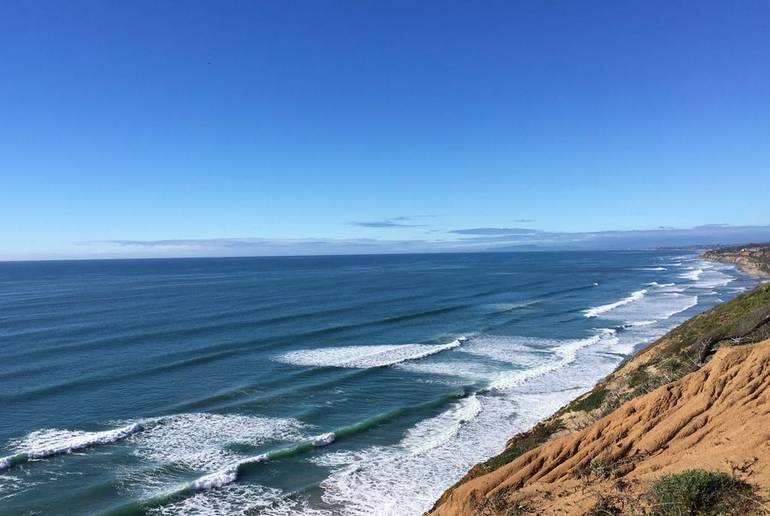
Getting There
The Torrey Pines State Natural Reserve is located between La Jolla and Del Mar, California, just north of San Diego. Travel from Orange County will take about two hours; add a half-hour to that coming from Los Angeles.
Visitors from Los Angeles should set aside time for a three-hour drive. Lodging is available locally if you are planning a weekend trip.
Leave a Reply